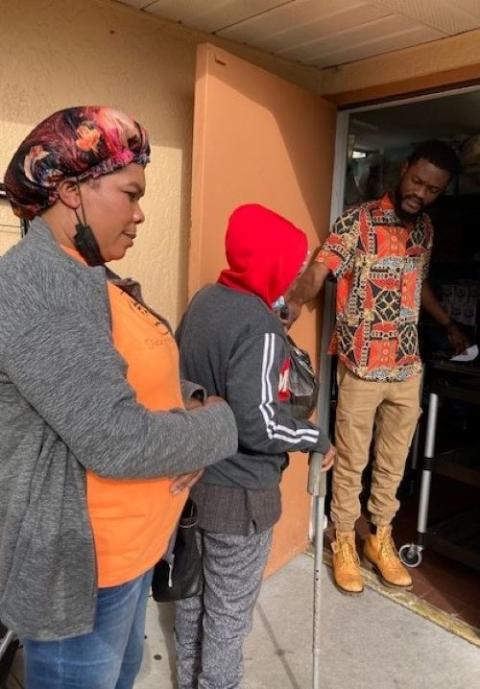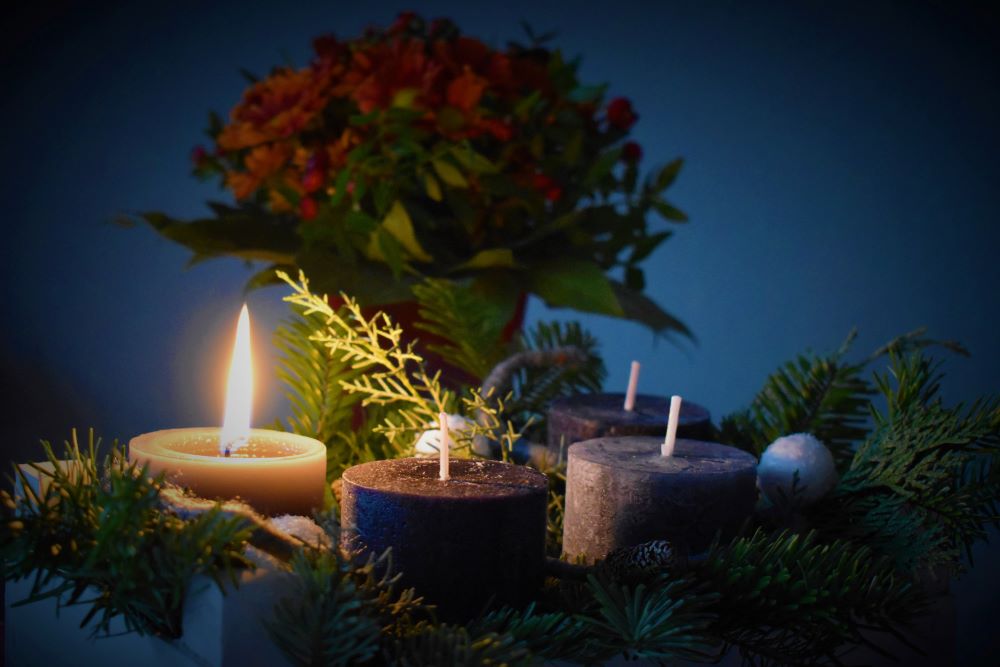
(Unsplash/Waldemar Brandt)

(GSR logo/Toni-Ann Ortiz)
Welcome to our sixth year of The Life, featuring a panel of 20 sisters who will reflect on issues that impact the lives of Catholic women religious around the globe.
We chose our panel from 50 good applicants from around the world, and it reflects a diversity of ages, nationalities, religious congregations, ministries and charisms. They'll take turns writing responses to a prompt or a question about spirituality, religious life and other topics.
Our panelists this year have ties to or have worked in Australia, Bangladesh, Belgium, Bosnia, the British Isles, Canada, Chile, Croatia, Egypt, France, Ghana, Guatemala, Haiti, India, Ireland, Italy, Jamaica, Kenya, Lesotho, Mexico, New Zealand, Nigeria, Papua New Guinea, Peru, South Sudan, Sudan, Ukraine, the United States and Vietnam.
They include an account manager at a Fortune 500 company, an anti-racism activist, a bursar, a physician, a psychotherapist, a second-year novice and a mother. Our panelists are teachers and school administrators; parish ministers, theologians, spiritual directors and counselors; missionaries; and sisters who have worked with prisoners, youth, women, refugees, migrants. There are panelists in nursing, social work, eco-spirituality and journalism, and panelists who work in peace-building and development, anti-trafficking work and sustainable development. Some of the sisters are in internal community ministries — including leadership teams, vocations, formation and development — or with organizations like Pax Christi and Network. One sister was even in the New Zealand Air Force. Meet all our new panelists here.
Read the responses of this month's panelists to our request to write a reflection on Advent.
______
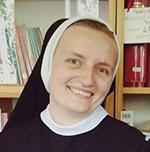
Teodozija Myroslava Mostepaniuk is a Ukrainian sister of the Order of St. Basil the Great (Province of St. Michael the Archangel, Croatia). Her academic background is in Ukrainian and English language and in religious pedagogy and catechetics. After final vows in 2018, she worked in parish ministry in Eastern Catholic parishes in Prniavor, Bosnia, and Kyiv, Ukraine. Currently, she is doing her licentiate studies in church history and teaching religious education in secondary school in Osijek, Croatia, and has contributed several columns to Global Sisters Report.
When I was a novice, there was a tradition in our community in Croatia: Every Advent, one of the sisters had to prepare a special evening prayer. While looking for an appropriate text, I came across a quote by Abba Dorotheus, a Syrian Christian mystic from the 6th and 7th centuries:
Imagine that the world is the circle, and the very center of the circle is God; straight lines going from the center to the circle are the paths of human life. So, as the saints enter the circle, seeking to draw nearer to God, so much, as they enter, they become nearer both to God and to each other; and the closer they are to God, the closer they are to each other; and the closer they are to each other, the closer they are to God.
The nativity icon in the chapel of the Generalate House of Sisters of the Order of Saint Basil the Great in Rome. (Myroslava Mostepaniuk)
Why do we meet other people while seeking the Lord? Why do we find God while approaching a person? Perhaps one of the answers to these questions is given in the Nativity icon. In it, in addition to the newborn Jesus and the Holy Mother of God in the center, on the edges of the icon, we see other people: Joseph, shepherds, three kings, midwives. All of them are depicted in a dynamic movement — Joseph is pensive, the shepherds are amazed, three kings are riding, water is flowing into the basin — but each figure is oriented to the center, to the newborn Christ. Because it is he, the incarnate Son of God, who is the answer to our seeking, to our doubts and questions.
We walk to him along the path of our life's advent. Accepting human weakness, fragility, vulnerability in ourselves and others as something that unites us and does not divide us, we become closer to each other and to him at the same time.
According to the Eastern tradition, in the Nativity icon, Jesus is dressed in burial clothes to foreshadow his death. Indeed, sometimes building a relationship, seeking rapprochement, giving life to another person has something about dying. This image speaks especially strongly to us, consecrated women of the 21st century. Besides our prayer life and ministry, we are especially called to testify that community life is one of the forces that nourishes us as individuals. It nourishes our service, but only if our steps from different countries, cultures, generations are directed toward the one and only center, toward Christ.
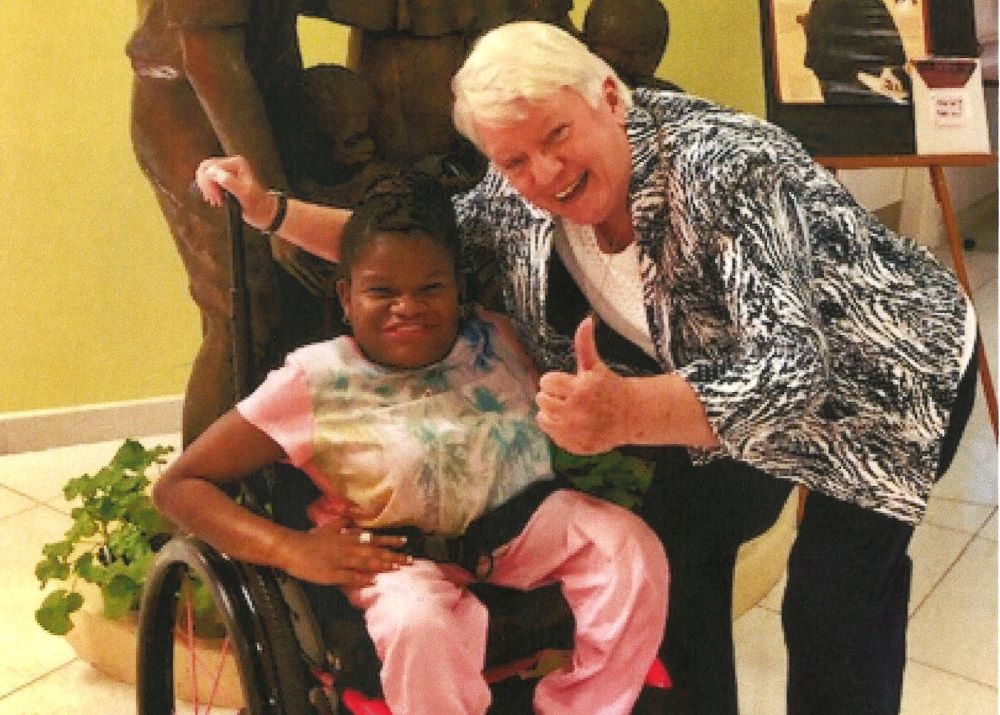
Sr. of Charity Nuala Patricia Kenny poses with a patient. Kenny, who is a physician, pediatrician and bioethicist, said working with courageous children who live every day with vulnerability and disability have shown her the importance of patience. (Courtesy of Nuala Kenny)
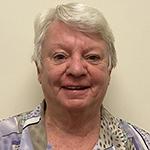
Nuala Patricia Kenny is a native New Yorker and a Sister of Charity of Halifax, Nova Scotia, Canada. She is a physician, pediatrician and bioethicist, who practices, teaches and works at several hospitals in Canada. She has received many honors for her work in child health, medical education and health policy. Past president of both the Canadian Paediatric Society and the Canadian Bioethics Society, she was chair of the Values Committee of the 1997 Prime Minister of Canada's National Forum on Health. She has authored numerous papers and several books.
I hate waiting. I'm not very patient. I think fast, talk fast and, even at 78, I walk fast. As a doctor treating seriously ill children, I was trained to respond STAT.
Every year when Advent arrives, I receive valuable lessons about waiting. I remember my childhood when waiting for Christmas was not irksome but a magical time filled with anticipation, a true "Advent-ure." The Advent calendar's words of encouragement were a joy to open daily. Christmas was worth waiting for. Waiting was possible because I trusted in God's promise of something wonderful.
Today, the sacred mystery of the Nativity of Jesus has been overtaken by Santa Claus and twinkling lights or festivals of gift-giving or sentimental stories about families coming home. It is completely disconnected from the wondrous spiritual and theological mystery of the Incarnation. Advent has little meaning in these stories. In fact, the Christmas season begins for most after Thanksgiving and ends on Dec. 25. The countdown is measured in shopping days left. Advent calendars are now filled with chocolate and liquor and lack messages of inspiration.
Every crèche and crib celebrate the sign of the all-powerful God's infinite love in a helpless infant born in poverty, political oppression and social exclusion.
Sermons through Advent predictably lament the secularization and call for "keeping Christ in Christmas." For me, the special grace of Advent is another God-given opportunity to remember and rejoice in the sure knowledge that God so loves us that he sent his Son, Jesus, to take on our fragility, vulnerability and dependence. Jesus emptied himself, taking the form of a slave, being born in human likeness (Philippians 2:6-7). The Incarnation makes all flesh holy: glowing young flesh, sagging old flesh, bruised and bleeding flesh, and flesh of every color and hue.
Every crèche and crib celebrate the sign of the all-powerful God's infinite love in a helpless infant born in poverty, political oppression and social exclusion: "She gave birth to a son, her firstborn. She wrapped him in swaddling clothes and laid him in a manger because there was no room at the inn" (Luke 2:7). We are given a unique opportunity to ponder with Mary this wondrous event and its meaning for our own vulnerability and need for God.
Today, we have expectations for instant response from our computers, our microwaves and medicine. Advent reminds me of the need for time in relationships because the Incarnation is not a once-a-year event, but the sign of God's passionate love affair with me and all creation.
People from the U.S. and Mexico take part in a posada, the commemoration of Mary and Joseph's search for shelter in Nogales, Mexico, Nov. 21, 2019. (CNS/Nancy Wiechec)

Maria Elena Gonzalez Galvan was born in Mexico City, where she studied interior design and social work. She entered the Congregation of the Religious of the Incarnate Word at age 24 and when she was newly professed was sent on mission to Kenya among the Pökot tribe. She worked in missionary animation and with young people in community apostolic works. She has done graduate studies in theology and later obtained the Diploma of Expert in Religious Life. She is currently pursuing a master's degree in missiology at the Intercontinental University in Mexico City.
Editor's note: This section was written in Spanish and translated into English by Sr. Helga Leija, Global Sisters Report's sister liaison to Latin America.
Waiting is one activity that tests our patience and tolerance. A traditional saying expresses this: "A watched pot never boils." We have all spent endless hours in waiting rooms — in terminals, outside doctor's offices, banks, or just waiting in line for our turn — hours that seem lost and that drag on endlessly.
There are also anguish-filled moments of waiting, as when, faced with the loss of health, we await the results of a biopsy, an analysis, or a treatment. Or when we are waiting for a favorable solution to a conflict, or a sentencing, or a labor request.
But there are moments of waiting that fill the heart with joy, such as the arrival of a loved one, the birth of a family member, or the completion of a project to which we have given our time and dedication.
More than 2,000 years ago, a young girl from Nazareth lived the most wonderful and transcendent wait ever. In her womb, she nurtured not only her son, but also the hope of Israel and the salvation of the whole human race.
Mary spent those nine months absorbed in the wonders of God in her womb. "Do not be afraid, Mary, you have found favor with God" (Luke 1:30). These words, spoken by the angel Gabriel, resounded in her memory, giving her strength and confidence, knowing she was unworthy of such a great blessing and wanting to collaborate with all her being.
Could it be real? Had she dreamed, had she been confused? But the reality was that the baby was growing in her womb, her body was blossoming with the gift of motherhood, and her communion with her God was growing closer and closer with every moment.
She must have wanted to shout it out to everyone. Would they understand? Not even Joseph himself was prepared for this great news, and Mary learned to live the secret of the King. Mary's silence was an expression of her confident hope: The work is God's, and he would bring to a successful conclusion what he had begun.
Advent is a remembrance of that joyful waiting, the confident hope that allowed the Word to become Flesh and give meaning to the life of every human being. It is the Christian hope that knows how to see beyond every sign of death the reality of true life, eternal life.
As for us, men and women of the 21st century, we are called like her to be open to the Spirit and wait with confident hope.
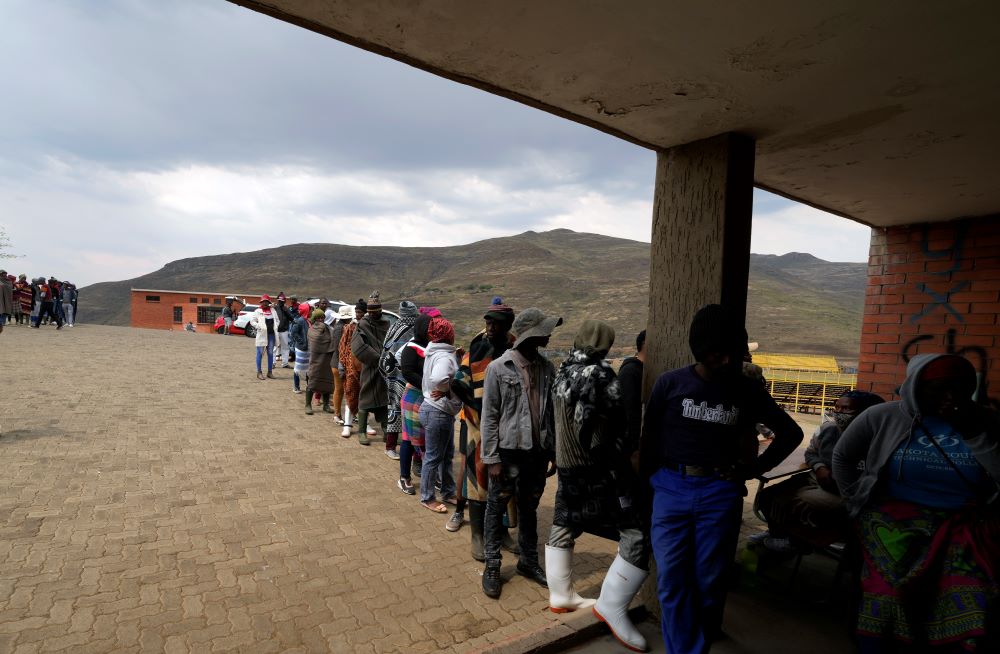
People line up to cast their votes at a polling station in Thaba-Tseka District in Lesotho Oct. 7. (AP/Themba Hadebe)
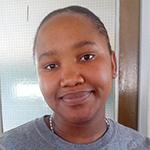
Lydia Lerato Rankoti is a member of the congregation of Sisters of the Holy Names of Jesus and Mary from Lesotho Province. She is a second-year novice who joined right after high school in 2020. She presently works at Maryland High School as the bursar.
Editor's note: This section was written ahead of Lesotho's October election.
I have been reflecting on Advent in the context of the political situation in Lesotho.
Will countries ever have faith, hope and joy in their leaders? So many people are heartbroken and without hope because of political instability, and in Lesotho, things are very complicated. We have many political parties and many promises from many political leaders, and people are confused. They don't know who will really keep their promises, but because they still have hope for new leaders, they will be going to vote.
It reminds me of the familiar Scripture about Israelites expecting the Messiah: "For to us a child is born, to us a son is given, and the government will be on His shoulders. And He will be called Wonderful Counsellor, Mighty God, Everlasting Father, Prince of peace" (Isaiah 9:5).
In Catholic understanding, Advent means waiting for something greater or a great event, so Advent brings expectations and transformation, joy and stability. Advent is about being vigilant. Without vigilance, the four elements that are so much a part of Advent — faith, hope, joy and light — could pass by unnoticed, and this could result in hopelessness.
If they were well managed, politics and elections could be a symbol for Advent!
Since there are new parties in Lesotho, many people go to the elections with hope, even though they were hopeless after being disappointed so many times in the past. This time, they believe that maybe God will answer their prayers and give them a good leader who will love the country and end the violence — just as Israelites expected of the Messiah.
It is sad for us to see women and children abused daily without anyone stopping it. People are not feeling protected, but who should protect the country if not the prime minister?
I am learning many things in my congregation and realize that as we become aware of political issues, we also have an obligation to give people hope and courage in times of hopelessness. As we hope for good changes from our general chapter, we also hope that things change for our country.
How do we bring elements of Advent to people?
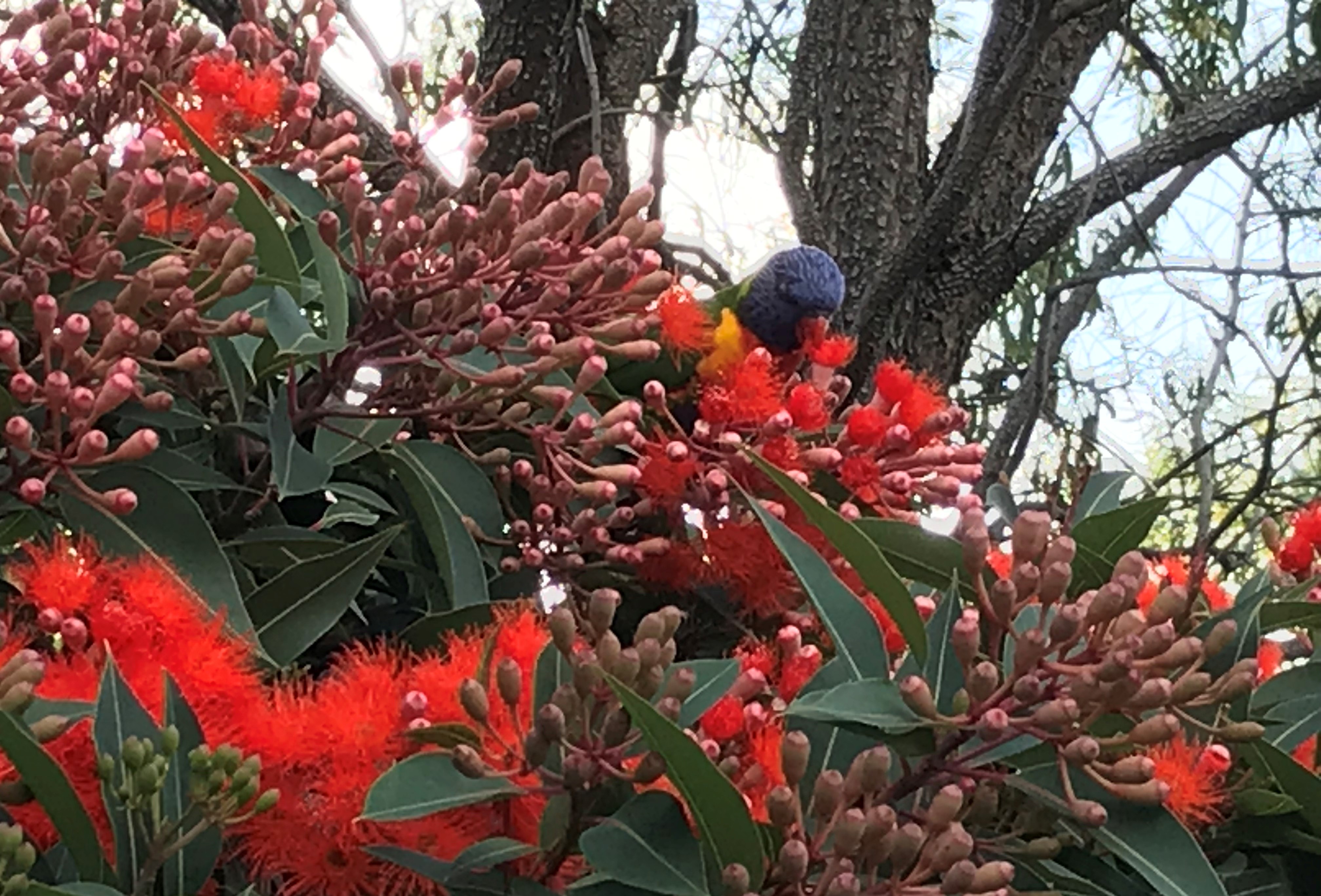
A wattle bird collects nectar on a callistemon (bottlebrush) tree, which is native to Australia. In Australia and New Zealand, life slows down before Christmas as schools finish for the year and the summer holiday begins. (Courtesy of Caroline Price)
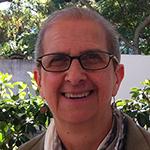
Caroline Price from New Zealand is a member of the Good Shepherd Sisters in Melbourne, Australia. Before entering the community, she served with the Royal New Zealand Air Force for 12 years in administration and flight operations. Since making final vows in 1990, she has ministered in New Zealand and in Rome at the Good Shepherd Generalate. She established the congregation's International Secretariat for Justice and Peace, which worked closely with their International NGO Office at the United Nations, and has served as area community leader for the sisters in Victoria, Australia. Currently, she is a member of the province leadership team.
In 2021, our congregational chapter was delayed/postponed a few times and finally came to fruition at the end of the year with the use of online technology. A new Advent for us and hopefully helpful for our planet! With about 150 people, including sisters and lay mission partners, attending aspects of the congregational chapter online, we saved the planet from the pollution that aircraft flights would have caused. A small thing, maybe, but significant.
Our province chapter was also held online after a few delays. And since the onset of the pandemic in 2020, we in our province have "met" each other online every two weeks, following themes or just taking time to connect. A new Advent in our lives.
Advent within the Christian tradition is known as a time of waiting for the coming of the Cosmic Christ. In my mind, Advent is not confined to a certain timeframe or season, even though it's very important in the Christian calendar. Advent: Times of waiting take place in the everyday of our lives: waiting for medical test results, news from loved ones or news of exam results, the outcome of a court hearing, or the birth of a new baby. That's a long wait for many women.
The weeks before the major feast of Christmas can be frenetic, stressful, challenging. For us in Australia and New Zealand, it's a winding-down. Schools finish for the year, and the summer holiday season begins. Given the stress that has been very evident over the past three years, I wait and hope for a summer that brings warmth, gentleness and peace.
This Advent, as I contemplate, I would like to take the time to appreciate the "little advents" in life and the waiting that I am invited into on a daily basis: a waiting that can strengthen and nourish me for the journey ahead into a new year. I know already that the new year will be filled with more waiting as we as a congregation begin in earnest a journey of restructuring to prepare us, to fit us for the future. There will be many small advents on this journey.
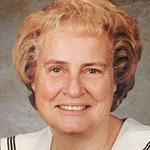
Judy Dohner is a Sister of the Humility of Mary from Villa Maria, Pennsylvania. She has worked with migrants and immigrants for the past 30 years. She returned to the United States in 2018 after ministering in Haiti for 16 years and currently works with Haitian immigrants and refugees in Immokalee, Florida. She has written for Global Sisters Report and the National Catholic Reporter.
What does it mean to wait?
Webster's dictionary says: "to stay in place in expectation," "to look forward expectantly," "to remain temporarily neglected or unrealized. " The New American Standard Bible offers the biblical meaning from the Hebrew word Qavah: to hope, expect, look eagerly, trust.
Immigrants and refugees are Advent people. They know what it means to wait. In September 2021, thousands of Haitian migrants arrived in Del Rio, Texas. They came from Chile and Brazil to seek a better life from the poverty and instability in Haiti. They looked forward expectantly to a better life.
But racism, the impossibility of finding work or getting a work visa, and no path to residency drove them away. They had stayed in place in expectation. These expectations were not met.
They keep coming, anticipating, trusting, hoping. The journey to America is dangerous and difficult. They travel almost 5,000 miles, mostly on foot and through at least 10 countries.
Marie Lourdes was 23 years old and pregnant when she, her husband and their 2-year-old daughter started from Brazil. Her husband died along the way. It took five months to arrive in Texas. She delivered a baby girl several days after arrival. She has no family in America and is staying with friends in one room in a small, crowded house. She is an Advent woman, hoping and trusting.
Since May 2020, Title 42 has forced migrants who are seeking asylum in America to remain in Mexico. These are Advent people! They wait a few months to over a year. If they have a family, they may be permitted into the country. Most single men and women are sent back to Haiti.
Many families come to the small immigrant agricultural town of Immokalee, Florida. They are Advent people! "Look up and raise your heads because your redemption is drawing near" (Luke 21:28). They arrive exhausted, without any help except the kindness of friends, relatives, the Haitian community and the church. They believe their waiting is over. They are Advent people who wait and stay in place with expectation, hope, trust.
But they are not yet aware that even in America, they remain temporarily neglected, with hopes unrealized. Most cannot receive any government assistance, including work permits, until immigration court approves their request for asylum. The immigration courts are backed up through 2025. Still, they hope and trust. They are resilient and faith filled and find their way.
Recently, a family with three school-age children arrived. The address they gave Immigration was in Jacksonville, Florida. When they arrived, their relatives had no room for five. They were sent to cousins in another town. Again, there was no room. They came to Immokalee and are staying in one room with a friend and paying $500 per month. All this happened in the first six days of their arrival. They are Advent people. They, like so many migrants, are waiting for Jesus. They all wait in hope.

